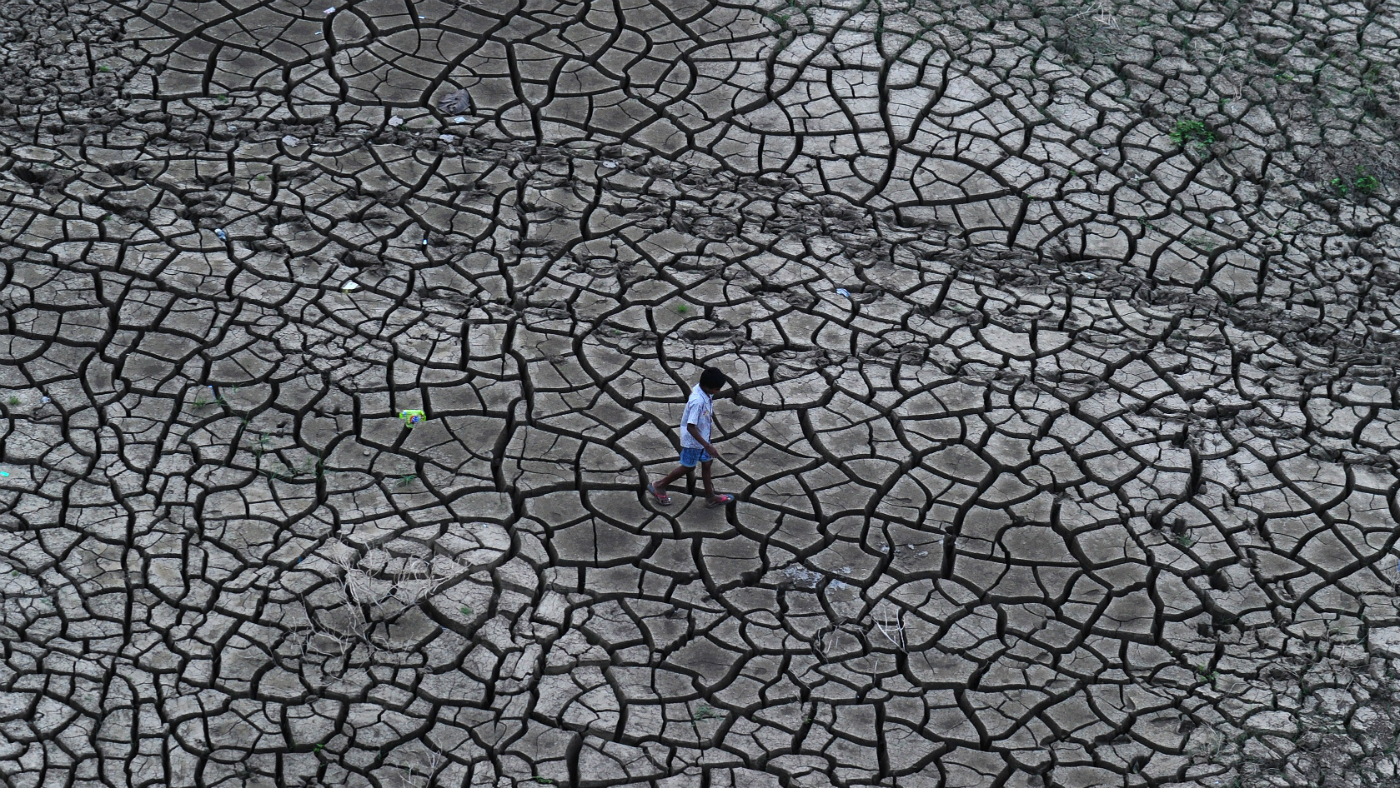Water shortages ‘likely to affect five billion people by 2050’
UN warns of threat of civil unrest, mass migration and wars over water

A free daily email with the biggest news stories of the day – and the best features from TheWeek.com
You are now subscribed
Your newsletter sign-up was successful
Climate change and a growing global population are likely to threaten the water security of more than half of the world’s predicted nine billion people by 2050, according to a new UN report.
Meanwhile, demand on water supplies is expected to rise by nearly a third. “If we do nothing, some five billion people will be living in areas with poor access to water by 2050,” says Audrey Azoulay, director-general of Unesco, which coordinates the annual study.
Currently, 3.6 billion people live in areas that are water-scarce for at least one month each year.
The Week
Escape your echo chamber. Get the facts behind the news, plus analysis from multiple perspectives.

Sign up for The Week's Free Newsletters
From our morning news briefing to a weekly Good News Newsletter, get the best of The Week delivered directly to your inbox.
From our morning news briefing to a weekly Good News Newsletter, get the best of The Week delivered directly to your inbox.
Azoulay warns that water scarcity can lead to civil unrest, mass migration and even conflict within and between countries.
“Ensuring the sustainable use of the planet’s resources is vital for ensuring long-term peace and prosperity,” she adds.
Water quality is also deteriorating, The Guardian reports. Since the 1990s, “pollution has worsened in almost every river in Africa, Asia and Latin America”.
The UN has recommended “working with nature, rather than against it”, in an attempt to make water use more efficient, cost-effective and healthier for both people and the environment.
A free daily email with the biggest news stories of the day – and the best features from TheWeek.com
“For too long, the world has turned first to human-built, or ‘grey’, infrastructure to improve water management,” says Gilbert Houngbo, chair of UN-Water, which coordinates water-related efforts by all UN groups. “In so doing, it has often brushed aside traditional and indigenous knowledge that embraces greener approaches.”
Cape Town, where residents were told they should prepare for life without running water earlier this year, is among the worst affected cities in the world.
Although a severe drought persists in the South African city, residents have managed to avoid Day Zero - the day when taps are turned off - by adhering to strict water conservation advice.
-
 What is the endgame in the DHS shutdown?
What is the endgame in the DHS shutdown?Today’s Big Question Democrats want to rein in ICE’s immigration crackdown
-
 ‘Poor time management isn’t just an inconvenience’
‘Poor time management isn’t just an inconvenience’Instant Opinion Opinion, comment and editorials of the day
-
 Bad Bunny’s Super Bowl: A win for unity
Bad Bunny’s Super Bowl: A win for unityFeature The global superstar's halftime show was a celebration for everyone to enjoy
-
 Epstein files topple law CEO, roil UK government
Epstein files topple law CEO, roil UK governmentSpeed Read Peter Mandelson, Britain’s former ambassador to the US, is caught up in the scandal
-
 Iran and US prepare to meet after skirmishes
Iran and US prepare to meet after skirmishesSpeed Read The incident comes amid heightened tensions in the Middle East
-
 Israel retrieves final hostage’s body from Gaza
Israel retrieves final hostage’s body from GazaSpeed Read The 24-year-old police officer was killed during the initial Hamas attack
-
 China’s Xi targets top general in growing purge
China’s Xi targets top general in growing purgeSpeed Read Zhang Youxia is being investigated over ‘grave violations’ of the law
-
 Panama and Canada are negotiating over a crucial copper mine
Panama and Canada are negotiating over a crucial copper mineIn the Spotlight Panama is set to make a final decision on the mine this summer
-
 Why Greenland’s natural resources are nearly impossible to mine
Why Greenland’s natural resources are nearly impossible to mineThe Explainer The country’s natural landscape makes the task extremely difficult
-
 Iran cuts internet as protests escalate
Iran cuts internet as protests escalateSpeed Reada Government buildings across the country have been set on fire
-
 US nabs ‘shadow’ tanker claimed by Russia
US nabs ‘shadow’ tanker claimed by RussiaSpeed Read The ship was one of two vessels seized by the US military